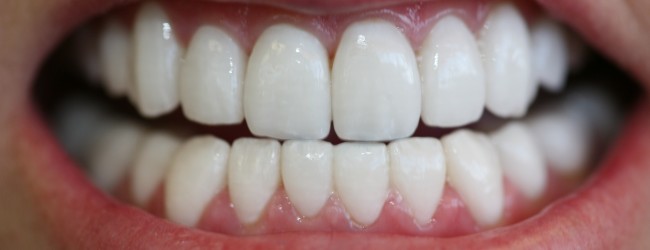
Porcelain vs. Composite Resin Veneers
What are the differences and the pros and cons of the different types of dental veneers ? Hopefully, some of your questions will be answered with the following information.
Do you dream of having a smile others will admire and envy? Perhaps things are so bad right now that you’d simply settle for teeth that wouldn’t immediately embarrass you. Whatever the case, veneers have made millions of people just like you extremely pleased with their smile. However, there are a number of versions you’ll want to consider in order to get the best possible result. Two of the best types are largely considered to be porcelain and composite resin veneers, so let’s look at them head to head.
What Are Veneers?
First, let’s cover the basics as this can also help us compare these two popular versions. Veneers are thin membranes designed to go over your current teeth. By doing so, they can give your smile an unrivaled whiteness to them. They can also be responsible for fixing issues you may have had with slightly crooked, turned or damaged teeth too. When the teeth are first addressed with things like braces, reshaping and other methods, veneers can have a compounded effect on improving your smile.
In order to attach them to your teeth, concrete is used for the bonding process. This should give you a good idea of how “permanent” this solution is and how thin they have to be in order for concrete to get in there without becoming an issue. There’s loads of information about veneers in this Wiki as well.
Porcelain Veneer Benefits
Porcelain veneers may be preferred over composite resin because of their durability. While they’re extremely thin, once they become connected to healthy teeth, this otherwise brittle material becomes extremely strong. Most people who get porcelain veneers report going as long as 10 to 15 years before ever needing further work.
They also look extremely real. Their natural appearance is due to the material’s translucent properties that make them look just like enamel. Even cosmetic resin can’t compare to how porcelain gives teeth the deep aesthetic that mimics the real thing.
On the flip side, porcelain veneers won’t stain as easily as real teeth, despite how much they share in common. Even if you some cigarettes or drink red wine or coffee, your teeth will resist the staining they usually cause.
Check out the following Youtube video for lots more information :
Composite Resin Veneer Benefits
Resin has long been turned to for replacing or otherwise altering teeth, due to how lifelike it can look. “Composite” refers to the fact that this type of veneer is applied to the tooth in layers and then sculpted for the desired aesthetic.
This solution is preferable when you have chipped or stained teeth. Minor misalignments can benefit from them too.
However, their greatest strength is probably how easily they can be removed and reapplied. So although they won’t hold up as long s porcelain veneers do, when you need them worked on, they’ll come off without a problem.
For the most part, if you can afford them, porcelain veneers are preferably. That being said, one other pro for composite resin is that it’s more affordable. Whichever method you decide on, just be sure you speak with a professional before committing and only let a specialist handle the process.
JG
